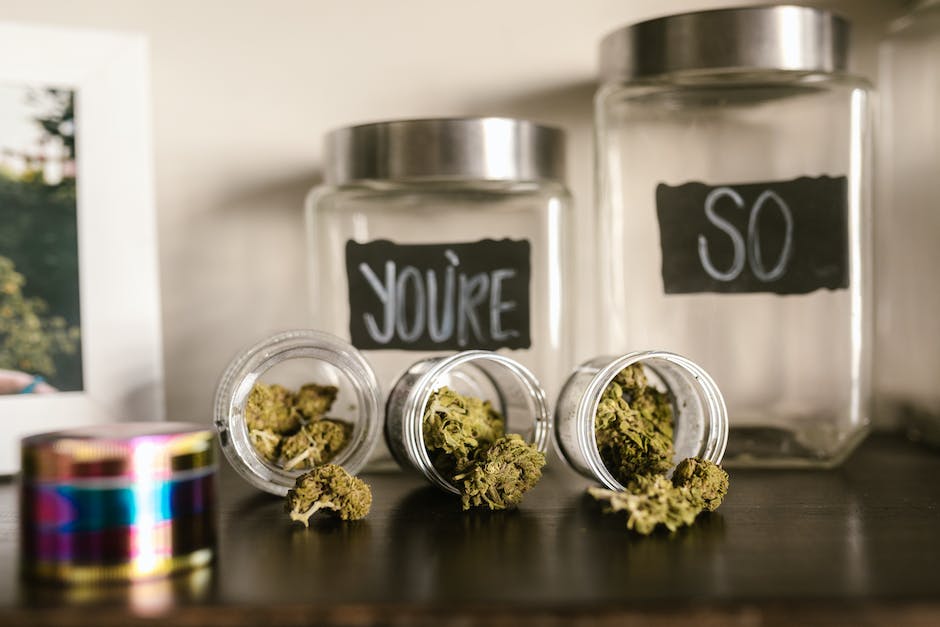With the gradual legalization of cannabis across the United States and other parts of the world, an opportunity to promote environmental conservation has presented itself. It is no secret that cannabis cultivation has a significant impact on the environment, both negative and positive. However, with the legalization of cannabis, we can leverage the positive impacts to promote environmental sustainability. In this blog post, we will explore how the legalization of cannabis can help to promote greener practices, and the benefits this can have for the planet.
Discussion of the environmental impact of illegal cannabis cultivation, including deforestation, water depletion, and pesticide pollution
Illegal cannabis cultivation has been shown to have significant environmental impacts, mainly due to a lack of regulation and oversight. Deforestation is one of the most significant environmental effects of illegal marijuana growing. Deforestation occurs because growers must have enough sunlight to grow their crops. To meet these requirements, they often clear-cut large areas of forest to provide their plants with the necessary sunlight.
Water depletion is another major impact of illegal cannabis cultivation. Cultivators often divert water sources in order to keep their crops hydrated, leading to adverse impacts on rivers, streams, and other natural bodies of water. Lower water levels can also affect the ecosystem of local flora and fauna, damaging fragile ecosystems.
Finally, pesticide pollution is a significant issue in areas where illegal cannabis cultivation is prevalent. The use of pesticides can have harmful effects on both human health and the environment. Pesticides can seep into nearby water sources or be absorbed by nearby plants, leading to environmental contamination.
In contrast, legalized cannabis cultivation can be monitored and regulated, leading to better environmental practices. For example, growing cannabis indoors with hydroponic systems enables year–round cultivation without deforestation. Regulations can identify how much water can be utilized. Furthermore, these regulations ensure growers use safe and appropriate pesticides, reducing the harmful impacts on the environment. By promoting regulated, legal cannabis cultivation, society can decrease the spread of illegal cannabis cultivation and the negative impact it has on the environment.
Explanation of how legalized and regulated cannabis production can reduce these negative impacts by moving to indoor and sustainable cultivation methods

With the increasing demand for cannabis and its legalization in many parts of the world, concerns about the environmental impact of cannabis production has become a major issue. Traditional cannabis cultivation methods, which involve using large quantities of water, energy, and pesticides, lead to significant environmental degradation. However, with the implementation of legalization and regulation, these negative impacts can be reduced by moving to indoor and sustainable cultivation methods.
Indoor cultivation methods can help mitigate the environmental damages caused by traditional outdoor growing methods. Indoor cultivation can reduce the need for water, since it is a recirculating hydroponic system that reuses water. Additionally, it uses less land, which reduces the need for deforestation, and artificial lights and carbon filters, which reduce the amount of greenhouse gases.
On the other hand, sustainable cultivation involves the use of organic materials and natural pesticides, and avoids the use of synthetic chemicals. Adopting sustainable cultivation practices can reduce soil erosion and chemical runoff, leading to improved soil health and better water quality.
Legalization and regulation of cannabis production can help incentivize producers to adopt these sustainable cultivation practices. By enforcing environmental standards and regulations for the production and sale of cannabis products, producers will be forced to take responsibility for their environmental impact.
Overall, the legalization and regulation of cannabis can provide an opportunity to promote sustainable cultivation practices, reduce environmental harm, and promote a greener future.
Overview of the potential economic benefits for local communities from legal cannabis production, including job creation and tax revenue generation

Legalizing cannabis can provide numerous economic benefits for local communities, particularly in terms of job creation and tax revenue generation. As a cash crop, cannabis cultivation and production can offer opportunities for small businesses and entrepreneurs to thrive in the emerging cannabis industry. In states where cannabis is legal, there has been a significant increase in job creation within the industry, ranging from growers and cultivators to dispensary workers and product manufacturers. In addition to job creation, legalizing cannabis production can also generate substantial tax revenue for local and state governments. This revenue can then be directed towards funding community programs and services, including education, healthcare, and environmental conservation efforts. By legalizing cannabis, local communities have the potential to benefit from the economic boost that the industry can provide, while also promoting environmental conservation and social responsibility.
Discussion of the potential for hemp, a close relative of cannabis, to promote environmentally-friendly products and industries, such as bioplastics, paper, and textiles

Hemp, a close relative of cannabis, has been touted as a wonder crop for its potential to promote environmentally-friendly products and industries. Hemp fibers can be used to create durable and biodegradable bioplastics, as well as eco-friendly paper and textiles.
Hemp paper, in particular, is rapidly gaining popularity as a sustainable alternative to traditional paper made from trees. Hemp paper is much more efficient to produce, requiring fewer chemicals and less water than traditional paper production. Additionally, hemp plants can be harvested and regrown much more quickly than trees, making it a more renewable resource.
Hemp textiles are also gaining traction as a sustainable alternative to cotton, which is known for its heavy use of water and pesticides. Hemp requires much less water and pesticides, and can be grown in a wider range of climates than cotton. Additionally, hemp fabrics are known for their durability and breathability, making them ideal for clothing and other textile products.
In summary, hemp has tremendous potential to promote environmentally-friendly products and industries. As more states and countries legalize cannabis, we may see a surge in hemp-related businesses and products that prioritize sustainability and conservation.
Explanation of how cannabis legalization and reduced law enforcement resources can redirect funding towards environmental conservation efforts

With the legalization of cannabis, law enforcement resources will be freed up and redirected towards environmental conservation efforts. This move will promote the protection of natural resources, wildlife, and ecosystems. The revenue generated from the legal cannabis industry also has the potential to fund environmental restoration and conservation projects. With reduced law enforcement costs and increased funding for conservation, there is an opportunity to create a more sustainable and environmentally conscious future. Hence, cannabis legalization can be a step towards a greener future.
Overview of the potential for cannabis to replace more environmentally damaging products, such as synthetic fibers and petroleum-based plastics
Cannabis has the potential to play a significant role in promoting environmental conservation. For instance, legalizing cannabis as an industrial crop could help to reduce reliance on synthetic fibers and petroleum-based plastics. These materials are notorious for their environmental impact – they pollute our oceans and landscapes and contribute to global warming. Cannabis, on the other hand, is a versatile and sustainable natural resource that can replace these harmful products. The plant’s strong fibers can be used to make clothing, ropes, and paper, while its oils can be used for medicinal and industrial purposes. By promoting the use of cannabis-based products, we can reduce our environmental footprint and move towards a greener future.
Discussion of the need for responsible consumption practices, including reducing packaging waste and choosing eco-friendly products
As the legalization of cannabis gains momentum globally, it’s crucial to consider the potential environmental impact of this burgeoning industry. It’s essential to recognize that while cannabis legalization can bring exciting economic opportunities, it needs to be done responsibly. Consumers must be encouraged to adopt sustainable consumption practices to minimize the environmental footprint of cannabis production and consumption.
One of the most significant environmental challenges associated with cannabis use is packaging waste. The cannabis industry typically uses non-recyclable materials, such as single-use plastic packaging, to distribute products. This packaging waste is not only harmful to the environment, but it’s also a significant threat to wildlife. The industry can address this issue by promoting eco-friendly packaging alternatives and educating consumers on the need to reduce waste.
Consumers can also contribute to promoting a greener future by choosing sustainable and eco-friendly products. Cannabis businesses must prioritize sourcing and using sustainable materials and resources in their production processes. Companies must integrate sustainable principles into their business practices to minimize their carbon footprint and promote eco-friendly operations.
In conclusion, the need to promote an eco-friendly cannabis industry cannot be overemphasized. Cannabis legalization must be done responsibly, and consumers must be encouraged to adopt sustainable consumption practices. These practices include reducing packaging waste, choosing eco-friendly products, and supporting businesses that prioritize sustainability. By embracing a greener approach to cannabis production and consumption, we can promote environmental conservation and create a better future for all.
Spotlight on businesses and organizations promoting sustainable cannabis production and consumption

As we move forward with the legalization of cannabis, it’s important that we consider every aspect of its production and consumption. Fortunately, there are already businesses and organizations dedicated to promoting sustainable practices in the cannabis industry. These companies aim to reduce the carbon footprint of marijuana production and bring more eco-friendly options to consumers.
One example of a sustainable cannabis business is New Belgium Brewing. Although primarily known for their craft beers, New Belgium has also entered the cannabis industry by creating a hemp-infused beer. They’ve focused on using sustainable practices throughout the brewing process, such as using renewable energy sources and reducing water consumption, a lesson they’ve taken from their beer brewing operation.
Another organization that promotes sustainability in cannabis is the Resource Innovation Institute (RII). RII is a non-profit organization that aims to reduce the energy and water usage of cannabis cultivation. They offer science-based advice and education to growers on ways to minimize their environmental impact.
By spotlighting these companies and organizations, we can raise awareness about the importance of sustainable practices in cannabis production and consumption. It’s essential that we work together to make sure cannabis doesn’t negatively affect our planet, and we need all hands on deck to make that happen.
